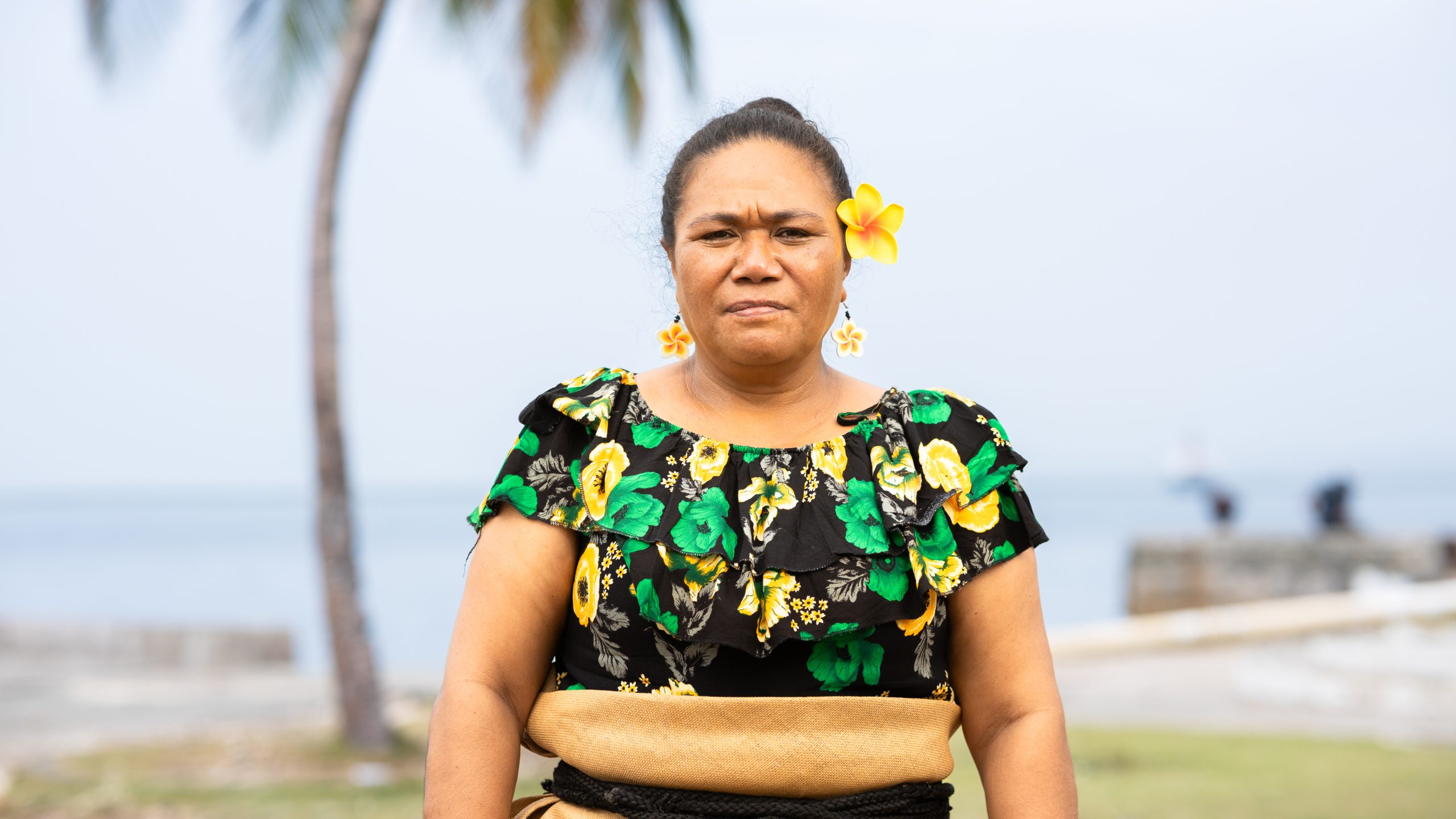Tongan activist Tita Longopoa has been fighting back against the threat of deep sea mining for over a decade. And now the world is at a tipping point. Here’s what you need to know, and how you can help save the Pacific from a never-before-seen extractive industry.
My ancestors, some of the earliest Polynesians, crossed oceans using just the stars for navigation. They were skilled voyagers who were truly connected to the sea. And today, here in modern Tonga, we still are.
My people’s survival is intertwined with the ocean, from its sustenance to its sea shells, which is why deep sea mining—and its threatened pillaging of the ocean floor—is a catastrophe waiting to be greenlighted.
Let me be very clear: We do not want deep sea mining. We do not need deep sea mining. And yet the Tongan government, alongside the governments of Kiribati, Cook Islands and Nauru, have signed on for deep sea exploration projects and are pushing for deep sea mining to be cleared for commercial production, both in the Exclusive Economic Zones (EEZ) that surround sovereign nations and the Clarion-Klipperton Zone (CCZ), a 4.5 million square stretch of Pacific ocean regulated by an intergovernmental body known as the International Seabed Authority (ISA).
These Pacific governments see oceanic mining as an easy economic fix for our small island nations; they are blinded by the promises of greedy foreign metals companies.
I’ve been working with the Civil Society Forum of Tonga, a community-led NGO, on preventing deep sea mining since 2012. Back then, we had no idea what it entailed—deep sea mining was a foreign concept, an entirely new frontier. The only thing we did know was that the companies and governments who told us oceanic mining would have “no impact on the marine environment” were waving giant red flags.
Fast forward, and today we know, without a doubt, that deep sea mining could cause irreparable damage to the Pacific—from devastating species loss and habitat ruin to an alarming quickening of climate change.
It’s a never-before-seen extractive industry, led by companies such as The Metals Company, who want to launch harmful and controversial mining methods on the planet’s deepest seabeds to remove mineral nodules.
The mined material must then be moved up through several kilometres of tubing, causing great plumes that will impact visibility and sound—both of which marine life uses for survival.
In August this year, I was invited by Greenpeace to join them at the ISA in Jamaica to speak on the issue of deep sea mining. Greenpeace has been championing environmental protection and within that, ocean protection, for a long time. And they’re doing so not just through frontline activism but by helping make sure Indigenous voices are being heard in the places and spaces that make a difference.
I joined a collective of campaigners from around the world who shared stories, made impassioned pleas, and spoke on behalf of Indigenous communities, from Fiji to Hawai’i, to stop deep sea mining. We stood as one, because the ocean is one. There are no real boundaries or borders; what happens in one corner can, and will, affect those living in the opposite.
No agreement was made by the end of the ISA assembly, but that isn’t cause for celebration. It just means we have gained a touch more precious time to save our ocean.
So what can we do? In Tonga, we’re continuing to hold protests, educate, inform and challenge governments and authorities. You can help us slay the beast too—speak with conviction, arm yourself with the right information, and sign the Global Ocean Treaty. Your signature is powerful.
After all, our ocean is a collective responsibility, and we should care for it together. Our Pacific communities might be on the frontlines of this new frontier, but if it’s approved in the CCZ, the devastation will be felt both above and below the surface.
‘Pacific’ is derived from the Latin word meaning ‘peace’. This is our ocean of peace, and we do not want it disturbed or desecrated. Not in our lifetime, and certainly not for future generations.

